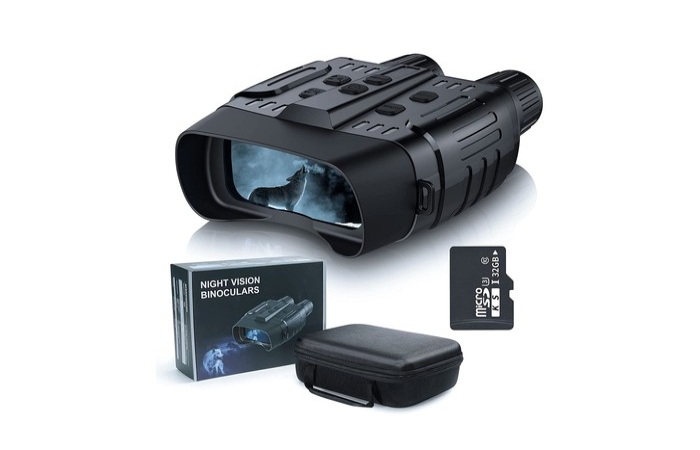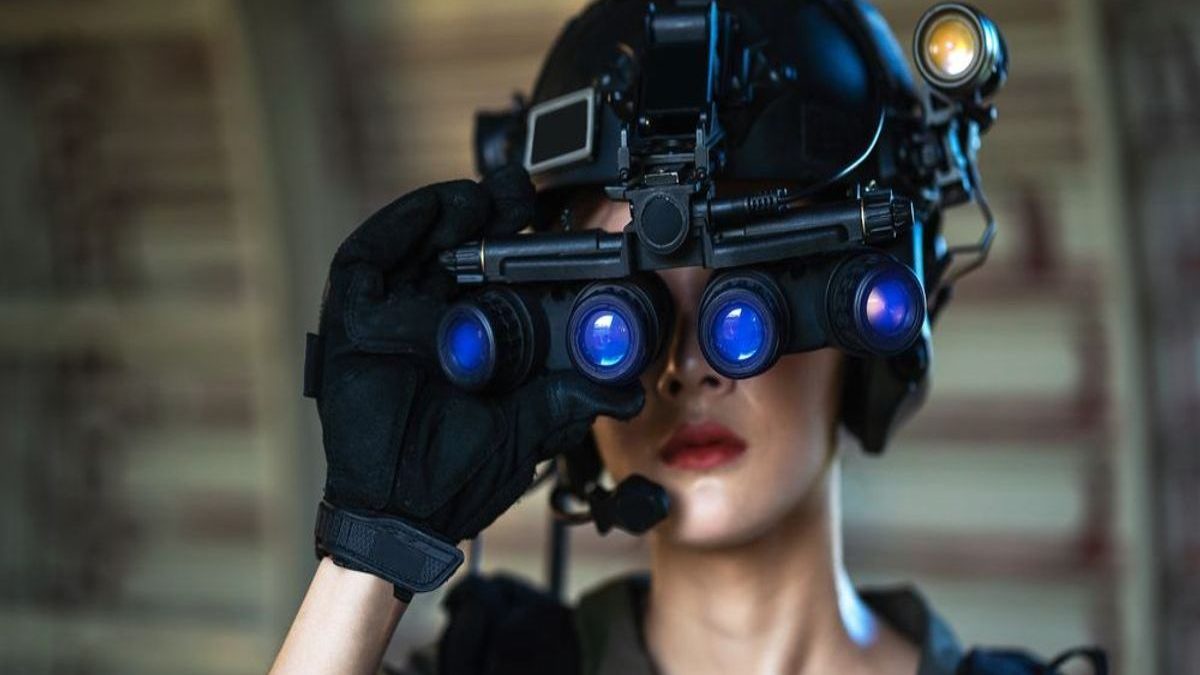Table of Contents
Introduction
Have you ever seen a show or movie about a spy? If so, you might know spies use special glasses to see in the dark. These devices are called night vision goggles. Today’s Sensation of the Day looks at how they work.
Do you doubt whether night vision goggles work? Yes, they do! They do a great job. On a cloudy, moonless night, the best night vision glasses can help people see more than 200 yards away.
First, it’s essential to understand something about light. Do you know that not all light is visible? It is true! The light that we can see is called visible light. It is only a part of the electromagnetic spectrum. Other types of light cannot be seen with the naked eye. This includes infrared and ultraviolet light.
What are Night Vision Googles?

Night vision goggles are electronic devices that let the wearer see better in the dark. They offer a hands-free alternative to other night vision equipment. While consumer-grade products are accessible, night vision goggles are frequently used in military or law enforcement settings. These tend to be expensive, and top-of-the-line models can cost thousands of dollars.
Night vision goggles (sometimes called NVGs) don’t usually have magnification, so the image distance you see is similar to what it would be to your unaided eyes. They cover both eyes and give the wearer better depth perception than a camera or a device with a single eyepiece. In a way, they are an artificial improvement of your natural night vision.
Night vision binoculars, monoculars, and cameras are generally more popular with the average consumer than goggles. These devices are often used for low-light security, hunting, and wildlife viewing.
How Do Night Vision Goggles Work?
It depends on which one you are using. Night vision goggles use two types of technology. They are image enhancement and thermal imaging.
Image enhancement increases the current light. It makes viewing images easier. Even in the darkest of nights, there are little glimmers of light. Some of this light may be infrared light that humans cannot see. Night vision goggles collect all available light using image enhancement technology. Then, they magnify it so you can easily see what’s happening in the dark.
Another night vision technique is called thermal imaging. Have you ever heard the word “thermal”? If yes, then you know that this technique is prevalent.
Hot objects, including the human body, give off heat in the form of infrared light. Night vision goggles use thermal imagery technology to capture this infrared light. That way, you can see a picture of what’s happening in the dark. It is based on the amount of heat generated by the objects.
Thermal imaging works well once trying to see persons in the dark. It is also better for dark conditions. However, most night vision goggles use image enhancement technology.
Night vision technology has numerous uses for the military and law enforcement agencies. For example, it can use to find people in the dark. It is also helpful for navigation and surveillance. Night vision can also be used for shooting and seeing animals after dark.
Types of Night Vision Goggles
Generally, there are two types of night vision goggles and gadgets: image intensity and thermal imaging. Each lets you see in the dark but in totally different ways.
image intensification
Also called image magnification, image intensity is what many people consider night vision. This is the place where everything is painted green.
Image intensifiers work like this:
- Light, made up of tiny particles called photons, enters the image-enhancing glasses. This ambient light is usually collected from the area’s moon, stars, or light bulbs in low-light scenarios.
- Optics changes the behavior of photons of light by converting them into electrons, then into new photons. This process brightens or intensifies the light.
- Green filters are sometimes used to make viewing the amplified image easier and more comfortable for your eyes.
- Enhanced photons enter your eye, and a previously low-light scene appears brighter.
This type of night vision makes it easier to see in low light levels but doesn’t make it easier to see. The image intensifier does not work in complete darkness.
Thermal Imaging
When a night vision device uses thermal imaging, it converts invisible heat into an image or color we can see. Unlike image intensifiers, thermal imaging technology can work in complete darkness if something gives off heat.
All light and radiation have a place on the electromagnetic spectrum. The shorter the wavelength, the lower the radiation in the range. The wider the wavelength, the higher the frequency. Our eyes can see only a tiny fraction of this scale. This visible light is what we see around us.
However, thermal imaging gives us a glimpse of infrared radiation (IR), which is usually invisible to the naked eye. Infrared radiation is related to heat; hotter objects emit more infrared radiation.
Some thermal night vision units display different levels of heat as dynamic colors. Hot objects appear in warm colors (red, orange, and yellow), while things with low heat appear in cool colors (blue and violet).
Other thermal devices display the image in black and white. In these, hot objects appear brighter and cold things appear darker.
Night Vision Binoculars, Monoculars, and Scopes
Binoculars and monoculars may not have the same hands-free convenience as glasses, but they offer something that glasses don’t magnify.
Binoculars and monoculars capture distant scenes very closely, but how close will vary between models. The most significant difference between night vision binoculars and monoculars is the number of eyepieces. Binoculars are designed for both eyes, while monoculars can only be used with one regard at a time.
Most consumer-grade night vision scopes are marketed to recreational hunters, many of whom buy them to attach to the top of their hunting rifles. Like glasses, measurements can also be used by military and law enforcement agencies and for other purposes.
Night vision binoculars, monoculars, and scopes are all available in image intensifiers and thermal imaging models.
Each of these three devices can be used for hunting to locate animals in low-light environments. Because animals naturally generate a lot of heat, tools using thermal imaging can be particularly useful, especially when the animal is far away.
Related searches:
night vision goggles
best night vision goggles
night vision goggles military
military night vision goggles
mw2 night vision goggles
night vision goggles for sale
thermal night vision goggles


